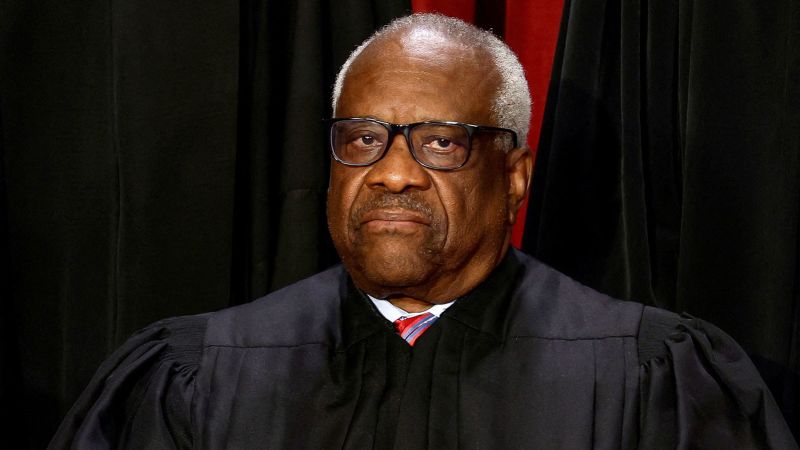CNN
—
Supreme Court Justice Clarence Thomas ended a monthslong saga last week by officially disclosing trips paid for by GOP megadonor Harlan Crow.
The incident brought to light a key fact: Unlike other federal courts and the executive and legislative branches, the US Supreme Court does not have a formal ethics code.
Americans, it turns out, don’t think the Supreme Court should be an exception in this case. And when it comes to honesty and ethics, they believe the justices on the court are, at best, average.
Take a look at a Marquette University Law School poll conducted in July. Just 32% of Americans rated the honesty and ethical standards of the Supreme Court justices as high, while 35% percent said they were low and 33% said they were average.
These poll results are largely in line with Marquette’s May poll findings on the same topic.
From a historical standpoint, 32% is low. Back in the 1970s and 1980s, about 50% of Americans agreed that the moral and ethical practices of the Supreme Court justices were excellent or good. Only about 15%, on average, said they were poor.
Unsurprisingly, given the court’s conservative majority, Republicans are far likelier now to say that the justices have high (about 55%) honesty and ethical standards than Democrats (about 16%).
But there is no significant partisan gap when it comes to whether there should be a formal ethics code for the high court justices.
A UMass Amherst poll conducted a few months ago (after Thomas’ trips financed by Crow first came to light) asked whether the Supreme Court should have a formal code of ethics like other federal courts.
About 90% of Americans said it should. Only about 10% said it should not.
To put in perspective how small that 10% is, consider that it is about equivalent to the percentage of Americans who believe NASA faked the moon landing or that the Earth is flat.
In fact, north of 80% of every subgroup polled in the UMass survey said that the Supreme Court should have a formal ethics code. This includes 96% of Democrats and 84% of Republicans.
The fact that so few Americans have a high opinion of the justices’ ethical standards and want a formal ethics code comports with larger negative views about the Supreme Court.
The percentage of Americans who approve of the court (40%) remains at the lowest this century, according to Gallup, with 56% disapproving.
The percentage of Americans who have a “great deal “or “quite a lot” of confidence in the court is at its lowest level (25%) in the last 50 years.
These low ratings come on the heels of several unpopular rulings by the court over the past few years (most notably, the overturning of Roe v. Wade).
This year, 40% of Americans said the court has too much power, according to a Pew Research Center poll. Four years ago, only 21% said that, per an SSRS survey.
Indeed, that already low opinion is what makes the ethics quandary that Thomas got himself into so unhelpful in the court of public opinion.
It’s one thing for the public to disagree with the court but believe that it’s just doing its job. It’s another thing for the public to disagree with the court and think its justices aren’t honest and moral.
In fact, the alleged ethical issues may be hurting perceptions of Thomas publicly. This summer, he hit his highest unfavorable rating in a Gallup survey as a member of the court (42%), which was below his favorable rating (39%). It’s the first time Thomas has recorded a negative net favorability rating since Gallup began polling about him.
As a baseline, Chief Justice John Roberts’ popularity rating is about the same as it has been over his time on the court.
Some may note that it makes sense that opinions of the court (including when it comes to honesty) have tumbled from where they once were given that opinions of the government, at large, have also declined.
But for an institution that likes to see itself as immune from normal politics, the latest data shows that Americans don’t see the court that way.
They see the court as increasingly political and are giving it the same low ratings they give other institutions.








